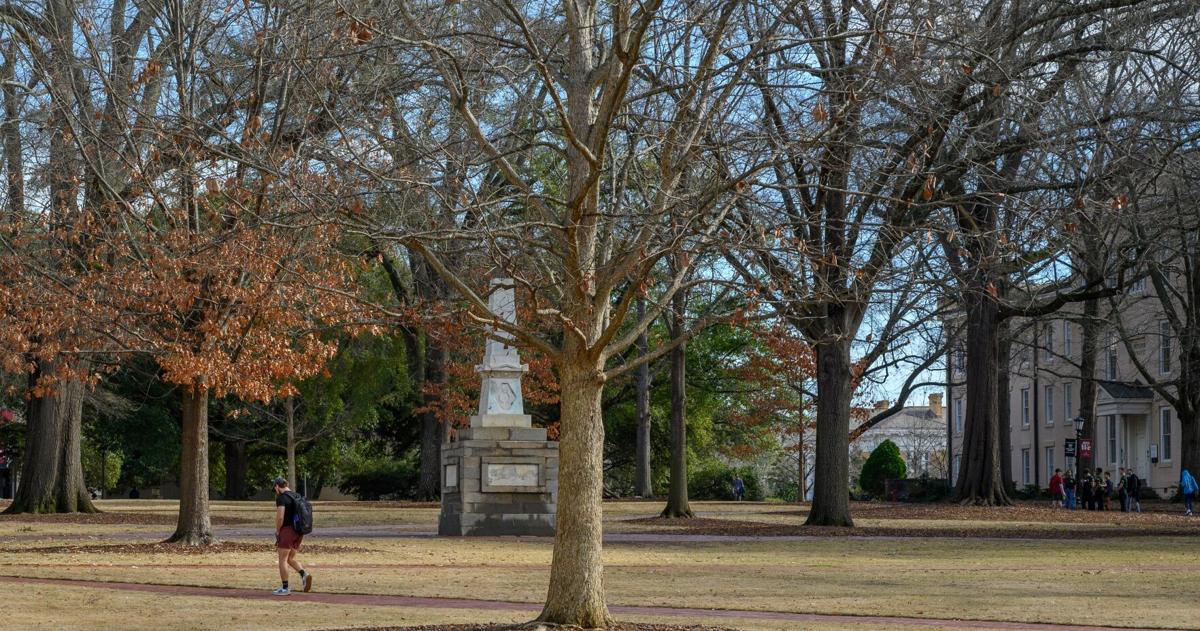Tuition to stay frozen for in-state USC students. Now it comes with a free AI chatbot, too. – Post and Courier

A few clouds. Low around 75F. Winds light and variable..
A few clouds. Low around 75F. Winds light and variable.
Updated: June 21, 2025 @ 10:39 pm
Education Lab Reporter
Ian Grenier covers K-12 and higher education in South Carolina from Columbia. Originally from Charleston, he studied history and political science at USC and reported for the Victoria Advocate in South Texas before joining The Post and Courier.
The Horseshoe is the historic center of the University of South Carolina’s campus in Columbia.
COLUMBIA — Tuition for in-state students at all of the University of South Carolina’s campuses will stay the same for a seventh-straight year under the budget passed by the school’s board of trustees June 20.
The Post and Courier’s Education Lab focuses on issues and policies affecting South Carolina’s education system. It is supported by donations and grants to the nonprofit Public Service and Investigative Fund, whose contributors are subject to the same coverage we apply to everyone else. For more information and to donate, go to postandcourierfund.com.
Students from outside of South Carolina will pay about 3 percent more than last year. At the flagship Columbia campus, in-state tuition will be $12,688 a year while out-of-state students will pay $37,388 a year.
Other costs of attendance are increasing. On average, Columbia students will pay $233 more for housing and $96 more for meal plans in the upcoming fall semester. They’ll also be charged an annual $300 athletics fee, which comes on the heels of the House settlement that lets schools pay athletes directly, though USC said the fee would not be used for name, image and likeness payments, coaching contracts or the recently-approved football stadium renovations.
Also approved by the university’s board was a $1.5 million contract with technology company OpenAI, which will give everyone on the Columbia campus free access to the ChatGPT artificial intelligence chatbot’s enterprise version.
The university said the technology, when used “appropriately” by students, can “improve academic outcomes” by providing study aids and help with time management, and by preparing them for a workforce that’s quickly adopting AI products. Faculty can use the chatbot to more efficiently develop lesson plans, grade students and conduct research, USC officials said.
“The campuswide adoption of secure enterprise AI technology puts USC on the leading edge of higher education institutions,” Brice Bible, USC’s vice president for information technology and chief information officer, said in a statement. “This initiative will not only make our students more employable, but it will allow for much greater innovation in the classroom and across research teams in every discipline.”
Other USC campuses also can opt into that first-in-the-state agreement.
Asked if the increased adoption of ChatGPT prompted concerns about academic dishonesty, a university spokesman pointed out that students already have access to the publicly available version of the software.
The enterprise version of the software includes more data security and administrative tools, according to OpenAI.
USC’s embrace of the new technology extends to its academic offerings. The board approved a new undergraduate certificate in artificial intelligence literacy, which includes two required courses about the ethical use and capabilities of AI, alongside two elective courses relating the technology to students’ majors.
As with the rest of the state’s public colleges and universities, USC’s continued in-state tuition freeze is supported by state funding meant to mitigate income lost from not increasing the cost of classes. Its Columbia campus will get about $14.4 million — less than the $25.8 million the university had asked for.
Earlier in the year, lawmakers had considered allowing schools to raise in-state tuition for new students. That proposed change was included in the state House of Representatives’ budget bill, but did not make it into the legislature’s final budget after opposition in the Senate and from Gov. Henry McMaster, who said he would consider vetoing it.
The General Assembly set aside $150 million towards the university’s plan to build a $350 million, 115-bed neurology hospital as part of its new health sciences campus in Columbia’s BullStreet District. The other $200 million is coming from the S.C. Department of Health and Human Services.
That facility, along with a nearby brain health center and its statewide brain health network, is part of the university’s recent focus on neurological health and neuroscience.
“With support for key educational, research and health sciences initiatives, this funding will open doors for more students seeking to earn a college degree and prepare them for our state’s workforce needs,” university President Michael Amiridis said in a statement. “It will also empower USC to deliver the scientific inquiry and discoveries that are improving the lives of South Carolina citizens.”
Construction work has begun on the first part of the new campus, a $300 million medical education and research building that’s supposed to be finished by the fall of 2027. It’s replacing the School of Medicine’s existing facility at the U.S. Department of Veterans Affairs campus on Garners Ferry Road.
The board gave approval June 20 for the university’s administration to explore adding about four more acres of land to its property there, which would be used for the planned neurology hospital.
Reach Ian Grenier at 803-968-1951. Follow him on X @IanGrenier1.
Education Lab Reporter
Ian Grenier covers K-12 and higher education in South Carolina from Columbia. Originally from Charleston, he studied history and political science at USC and reported for the Victoria Advocate in South Texas before joining The Post and Courier.
The Post and Courier
148 Williman Street
Charleston, SC 29403
Phone: 843-577-7111
News tips/online questions: newstips@postandcourier.com
Delivery/subscription questions: subserve@postandcourier.com
Your browser is out of date and potentially vulnerable to security risks.
We recommend switching to one of the following browsers:
, Post and Courier, an Evening Post Publishing Newspaper Group. All rights reserved. | Terms of Sale